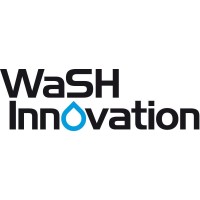

Introduction
WaSH Innovation is a Polish SME that designs and produces portable personal hygiene systems. The company’s mission is to provide convenient and dignified washing experience in areas with limited access to running water. The products are particularly useful in regions routinely impacted by natural disasters, military operations, large migrations, and informal settlements. In times of crisis, these products offer a sense of normalcy and comfort when needed most, ensuring that even in the most challenging circumstances, basic needs are met.
Moreover, the equipment is useful for camping enthusiasts, ensuring hygiene even in the most remote locations.

Why Japan?
Due to Japan's vulnerability to natural disasters, there is a strong demand for products that help mitigate the effects of such events. This proved to be a key factor in the Polish company's decision to focus on the Japanese market.
The burgeoning camping market in Japan was another reason the company decided to concentrate its efforts there.
The EU-Japan Centre Support
Zdzislaw Iwanejko, the founder and CEO of our company, has made significant efforts to understand the Japanese market over the past few years. To this end, he participated in various programs offered by the EU-Japan Centre for Industrial Cooperation. Notably, in 2021, he was selected to participate in the Get Ready for Japan (GRFJ) program. This program equips European companies with the essential knowledge and tools needed to succeed in Japan. Mr. Iwanejko highlighted how taking part in GRFJ: “fully prepared us to enter the Japanese market and helped us establish many interesting contacts. The Centre’s staff arranged several meetings for us [...] “Get Ready for Japan” was the best market preparation program I have ever participated in.”
Soon after, Mr. Iwanejko also took part in the 3rd Japan-Africa Business Forum through the EU-Japan Centre’s pavilion. In relation to this experience, Mr. Iwanejko said that WaSH Innovation: “noticed an opportunity to bring added value to a hand-washing programme led by the Japan International Cooperation Agency (JICA) and a large Japanese hygiene company in Africa. With considerable help from the EU-Japan Centre and the African Development Bank, we managed to get in touch with the Japanese company involved in this programme and we sent them samples for testing. Together, we aim to raise awareness on hand hygiene in Africa. Ultimately, we plan to partner up and open an assembly line in East Africa to reduce transportation costs and improve employment and entrepreneurship education of the local population.”
WaSH Innovation also participated in the EU-Japan Centre’s World Class Manufacturing 2024 Programme. During this program, the company gained insights into Kaizen and optimal production practices. These principles have been integral to the company's continuous improvement efforts, especially in humanitarian aid projects.
Challenges and Advice to European Companies
Entering the Japanese market posed several challenges, primarily the language barrier. While representatives knew some basic Japanese phrases, communicating with potential contractors who do not speak English remains a hurdle. Despite these challenges, the Polish company is committed to fostering long-term cooperation in Japan, understanding that patience and persistence are key.
For European companies looking to enter the Japanese market, it is crucial to understand Japanese business culture. Learning basic Japanese phrases and engaging a good translator can make a significant difference. Additionally, patience is essential as establishing and nurturing business relationships in Japan can take time.
Article based on an interview with Mr. Iwanejko, founder and CEO of WaSH Innovation.
Interview published in July 2024.
The EU-Japan Centre currently produces 5 newsletters :










Joint venture established in 1987 by the European Commission (DG GROW) and the Japanese Government (METI) for promoting all forms of industrial, trade and investment cooperation between the EU and Japan.
The EU-Japan Centre’s activities are subject to the allocation of a Grant Agreement by the European Commission for 2024-2026

